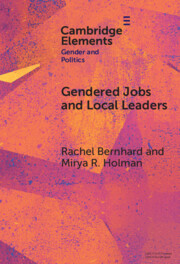Refine search
Actions for selected content:
141 results
13 - From Alliance to Enmity, 1945–1953
-
- Book:
- Distant Friends and Intimate Enemies
- Print publication:
- 20 November 2025, pp 256-282
-
- Chapter
- Export citation
The West Bank as Occupied Territory: The Irrelevance of the Mandate and the Lack of Jordanian Sovereignty
-
- Journal:
- Israel Law Review , First View
- Published online by Cambridge University Press:
- 07 August 2025, pp. 1-39
-
- Article
-
- You have access
- Open access
- HTML
- Export citation
Chapter 6 - Sovereignty over territory
-
- Book:
- International Law
- Published online:
- 26 July 2025
- Print publication:
- 31 July 2025, pp 303-335
-
- Chapter
- Export citation
The Politics of Small Business Owners
-
- Journal:
- British Journal of Political Science / Volume 55 / 2025
- Published online by Cambridge University Press:
- 18 July 2025, e94
-
- Article
-
- You have access
- Open access
- HTML
- Export citation
The Notion of an Illegal Occupation in the ICJ’s Palestine Advisory Opinion
-
- Journal:
- International & Comparative Law Quarterly / Volume 74 / Issue 3 / July 2025
- Published online by Cambridge University Press:
- 08 September 2025, pp. 517-553
- Print publication:
- July 2025
-
- Article
-
- You have access
- Open access
- HTML
- Export citation
Chapter 9 - Dictatorship, Occupation and Internment
-
- Book:
- Emigrant Soldiers
- Published online:
- 05 June 2025
- Print publication:
- 26 June 2025, pp 185-222
-
- Chapter
- Export citation
14 - Hiding and Passing as Non-Jews in Poland, 1942–1945
-
-
- Book:
- The Cambridge History of the Holocaust
- Published online:
- 16 May 2025
- Print publication:
- 12 June 2025, pp 233-248
-
- Chapter
- Export citation
Continuity, change and ‘living well’ for older people with dementia: longitudinal qualitative findings from the IDEAL cohort study
-
- Journal:
- Ageing & Society / Volume 45 / Issue 11 / November 2025
- Published online by Cambridge University Press:
- 04 April 2025, pp. 2187-2206
- Print publication:
- November 2025
-
- Article
-
- You have access
- Open access
- HTML
- Export citation
Korean Film Companies in U.S. Occupied Japan: Imagining an Independent Korea
-
- Journal:
- Asia-Pacific Journal / Volume 12 / Issue 38 / September 2014
- Published online by Cambridge University Press:
- 14 March 2025, e3
-
- Article
-
- You have access
- Open access
- Export citation

Gendered Jobs and Local Leaders
- Women, Work, and the Pipeline to Local Political Office
-
- Published online:
- 07 February 2025
- Print publication:
- 06 March 2025
-
- Element
-
- You have access
- Open access
- HTML
- Export citation
Chapter 1 - Occupation
-
- Book:
- The Quislings
- Published online:
- 12 December 2024
- Print publication:
- 19 December 2024, pp 26-78
-
- Chapter
- Export citation

The Quislings
- The Trials of Norwegian Wartime Collaborators, 1941–1964
-
- Published online:
- 12 December 2024
- Print publication:
- 19 December 2024
Chapter Six - World Law and Occupation Constitutions
-
- Book:
- A Sociology of Post-Imperial Constitutions
- Published online:
- 06 December 2024
- Print publication:
- 12 December 2024, pp 321-371
-
- Chapter
- Export citation
1 - The Emergence of E-Waste Hubs
- from Part I - Positioning E-Waste Hubs
-
- Book:
- Polluted Politics
- Published online:
- 18 December 2024
- Print publication:
- 05 December 2024, pp 3-32
-
- Chapter
- Export citation
Chapter 16 - Occupation-Era Literature in Haiti
-
-
- Book:
- A History of Haitian Literature
- Published online:
- 07 November 2024
- Print publication:
- 21 November 2024, pp 290-302
-
- Chapter
- Export citation
2 - Europe’s Zero Hour: Population Transfers in the Aftermath of WWII
- from Part I - Introduction
-
- Book:
- Uprooted
- Published online:
- 07 November 2024
- Print publication:
- 21 November 2024, pp 31-62
-
- Chapter
- Export citation
Exploring the Link Between Parental Sociodemographic Characteristics and Multiple Births: Insights from National Birth Data in Japan, 1995–2020
-
- Journal:
- Twin Research and Human Genetics / Volume 27 / Issue 4-5 / August 2024
- Published online by Cambridge University Press:
- 03 October 2024, pp. 223-230
-
- Article
-
- You have access
- HTML
- Export citation
Israel, Annexation, and Sovereignty: Within the Green Line and Across It
-
- Journal:
- International Journal of Middle East Studies / Volume 56 / Issue 3 / August 2024
- Published online by Cambridge University Press:
- 13 January 2025, pp. 361-378
- Print publication:
- August 2024
-
- Article
-
- You have access
- Open access
- HTML
- Export citation
6 - The Protection of Civilians and the Law of Occupation
-
- Book:
- International Humanitarian Law
- Published online:
- 25 October 2024
- Print publication:
- 09 May 2024, pp 160-190
-
- Chapter
- Export citation
16 - The Application of Human Rights in Armed Conflict
-
- Book:
- International Human Rights Law and Practice
- Published online:
- 08 February 2024
- Print publication:
- 15 February 2024, pp 744-775
-
- Chapter
- Export citation
